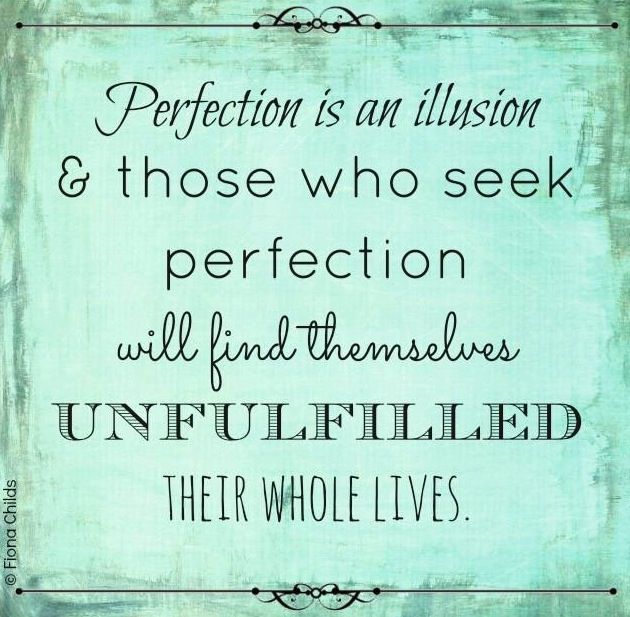Honor Jane Newman is the author of a short and handy self-help book for women titled Killing the Perfectionist Within: A Self-Help Guide for Women Suffering from Perfectionism, Anxiety, and Chronic Fatigue Syndrome. The book includes tips and tricks to tackle the difficult emotions and situations that can arise when you seek perfectionism on a daily basis. A particularly poignant read for women, both young and old, Killing the Perfectionist Within is the perfect beginning to a journey towards healing.
I had a chat with Honor and found out about her inspiration behind writing this book and about her career in psychology so far.
Could you tell us first about your career so far as a psychologist? What made you study in this field?
About 10 years ago I started my Master’s degree in psychology. This is when I first started seeing clients. I have also worked as a psychologist in welfare, student counseling, in a low cost clinic, in a primary school and in private practice. After I had my second child I decided to work in private practice so I could have work flexibility and be close to home for my children.
Over my career I have noticed that people that have the same psychological issues have the same associated physical complaints and I have become very passionate about the mind/body connection as a result. This has become apparent in more than one work setting. I’ve also noticed that I seem to attract clients that are very similar to myself, so it made sense that whilst I was working through perfectionism, I had a lot of clients going through the same thing.
I wanted to study and work in this field for a number of reasons. I’ve always liked talking to people and hearing their stories and I like helping people. Also my own experience of therapy was transformative to my life, and I wanted to be a part of helping others achieve the life they’ve always dreamed of, no matter what background they may have come from. I really believe anyone can heal if they want to with the right help.
What inspired you to write Killing the Perfectionist Within?
I was inspired to write this book because I figured out how to treat my own perfectionism and then I started helping others do the same, so I thought a little handbook, that was fun and easy to read, with practical and relevant information would be wanted and useful.
Can you explain how you believe that Chronic Fatigue Syndrome and perfectionism can be related?
People with perfectionism are always striving to meet these impossible standards, so they often become extremely fatigued. I think there is a possibility that down the extreme end it MAY contribute to chronic fatigue syndrome. There have been a few scathing reviews of my book for making this statement and I think this comes from misunderstanding. I am not in any way saying that this is not a legitimate illness I merely believe that ALL illnesses have a specific mental pattern associated with them. When I interviewed people with Chronic Fatigue a lot of them felt really misunderstood by society. But also what they talked about was what high achievers they were before they got sick and how they were always on the go and never stopped. Then one day they got sick.
What do you think is the biggest challenge to those experiencing CFS, perfectionism and anxiety?
I think the biggest challenge is always admitting to yourself that something is wrong as this can be painful. However, once you have then you can move forward. My challenge was finding the right help as I felt my illness was disenfranchised in the world of traditional medicine. I’d get told to have a rest or go on anti-depressants. It is hard enough when you are struggling with your health, but when there is a lack of understanding or appropriate help it makes it so much worse. I just had to experiment and try different healing modalities and find out what worked. So now that I have I can offer that package of things to others so they don’t have to be lost and struggle in a world that doesn’t understand and they can start healing without having to waste years looking for the right treatment.
How does your book help those dealing with these troubles?
I’ve tried to offer insight and practical strategies, which is how I work as a psychologist. The first half of the book focuses on raising insight into some of the things I see as contributing factors to this condition and the second half of the book is all about practical things that a person can build into their lifestyle to help them to feel better. I hope it empowers people to start to take some control over their own health.
Do you believe that these disorders/symptoms are primarily a female issue?
Hmm good question, not exclusively, I know men can suffer from this as well. However, I know that many, many women have these issues especially around things like guilt and people pleasing as our culture conditions us to put others first all the time. I aimed the book at women as I am passionate about empowering women to live the lives of their dreams and I saw this book as part of that.
What do you hope those who read your book come away with?
Hope. Understanding. Knowledge they are not alone. A place to start healing.
Do you have any plans to further your studies on perfectionism, CFS, and anxiety?
I would like to do a research project on personality patterns and physical illness in the future.
Is there anything else you’d like to add?
Ever since philosopher Rene Descartes ideas came into the mainstream it has become very unpopular to talk about the mind body connection. He propounded the idea that the mind and body are separate and I truly believe they are not.
People get extremely upset if you imply there is a psychological component to their illness as if you are somehow blaming them, accusing them of making it up or telling them they are mentally unstable. This is not the case. I believe that we have a lot more power over our health and healing than we have been lead to believe. I have personally cured myself from several physical illness though meditation and have recovered from severe depression through talking alone. If we can embrace the mind body connection we open up so many doorways to healing and I want people to know this.
Interview with Honor Jane Newman
Killing the Perfectionist Within



